Some sci-fi fans delight in realistic details — they want a thorough explanation for that warp drive and a full Rosetta Stone course for that made-up alien language. Luckily, there's a wealth of hard sci-fi stories out there to analyze and enjoy. But specificity and hyper-realism aren't the only reasons to read science fiction. Sometimes, we crave "soft" sci-fi — the sort of imaginative fiction that disregards the limits of realistic futurism.
Some of science fiction's greatest works simply ignore the possibility of realistic explanations, or opt for magic or absurdity over theoretical physics. And sometimes, soft sci-fi just works better. For instance, Star Wars is all the better for its fantasy elements and its ridiculous physics, complete with loud sounds and burning flames in the vacuum of space.
RELATED: 10 Brilliant Hard Science Fiction Books
Even the details you’ll find in the Star Wars Guide to Vehicles and Vessels are absurd — the book labels every part of every engine, and none of it makes any sense. When Star Wars does occasionally court the "hard" side of sci-fi with a more logical and scientific approach to worldbuilding, it rarely goes well — remember midichlorians?
One reason to love soft sci-fi is its focus on character. With hard sci-fi, concepts and inventions can be characters and plots unto themselves; but with soft sci-fi, the focus is necessarily on the emotions and motivations of the characters.
In soft sci-fi, the rules of concepts like interstellar travel are easily moved to accommodate the plot and the characters.
RELATED: Ten Mind-Bending Hard Sci-Fi Books by Women
When dealing with human psychology, soft sci-fi can sometimes feel as realistic and as detailed as hard sci-fi — in fact, some readers define "soft sci-fi" not as the opposite of "hard" sci-fi, but as sci-fi focused on the soft sciences (psychology, sociology, anthropology, political science, and others) rather than the hard sciences (like physics).
Whatever definition you prefer, we have recommendations for you. Here are our favorite soft sci-fi books, including freewheeling satire, fantasy-infused sci-fi, masterful and imaginative takes on the soft sciences, and more.

Douglas Adams
It doesn't get much "softer" than The Hitchhiker's Guide to the Galaxy, which revels in its own absurdity.
Nothing in The Hitchhiker's Guide to the Galaxy feels realistic or technical, but that's by design — and it leaves plenty of room for Douglas Adams' wit and insight.
RELATED: Neil Gaiman Talks the Timeless Appeal of Douglas Adams
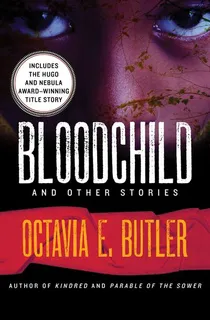
Bloodchild
Octavia E. Butler’s masterful science fiction tends to focus on anthropological and sociological concerns.
In the title story of this collection, she vividly imagines a society in which humans are second-class citizens, locked in a symbiotic — or perhaps parasitic — relationship with a more powerful alien species.
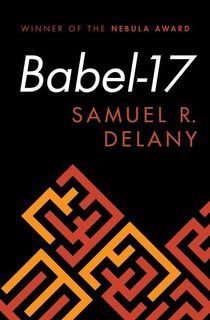
Babel-17
Babel-17 combines the soft sciences with pulpy sci-fi inventiveness. Set during an interstellar war, this book tells the story of a linguistic weapon — a language that can enslave the mind and trigger violent betrayal.
It’s the soft-science concept of linguistic relativity served up in a way that might almost qualify as “hard” sci-fi.
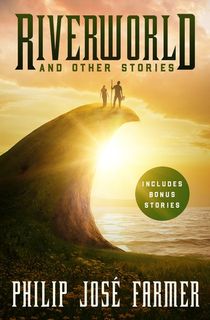
Riverworld and Other Stories
Farmer’s Riverworld series explores soft-science concepts like anthropology and sociology.
On Riverworld, essentially an artificial Earth, a powerful alien intelligence seems to be mixing and matching humans and societies, examining the interactions of groups from different cultures and time periods in a bizarre and massive experiment.
The centerpiece of this collection is a short story that uses the same setting and some of the main characters from the Riverworld series of novels.
RELATED: Philip Jose Farmer's Books Are More Relevant Than Ever

Dune
Is Dune really soft sci-fi? On the one hand, its intricate world-building and wealth of detail might appeal to the hard sci-fi crowd. On the other, Dune's supernatural elements and use of archaic political structures can feel "soft" and fantasy-like.
Besides, Dune's elaborate and detailed world would still fit the "soft sciences" definition of soft sci-fi — there's certainly more here for students of political science or anthropology than there is for fans of astrophysics.
At any rate, these questions are academic: We obviously weren't going to miss the chance to include Dune on this list. Come on! It's Dune! Who doesn't love Dune?
RELATED: Go Beyond Fear With the First Trailer for Denis Villeneuve's Dune

Never Let Me Go
Kazuo Ishiguro’s brilliant literary sci-fi novel is set in a dystopian future that slowly emerges throughout the course of the story.
It’s imaginative, but not absurd and certainly not lighthearted — this is a soft sci-fi novel in the sense that it eschews granular details about futuristic technologies and politics, and focuses instead of the emotional states of individual characters.

The Left Hand of Darkness
Ursula K. Le Guin's The Left Hand of Darkness is a great example of the "soft sciences" version of soft sci-fi.
Nobody would accuse The Left Hand of Darkness of playing fast and loose with realism or its own continuity, but Le Guin's exacting worldbuilding focuses almost entirely on areas like anthropology, psychology, and sociology. As usual, she creates something revelatory and unforgettable.
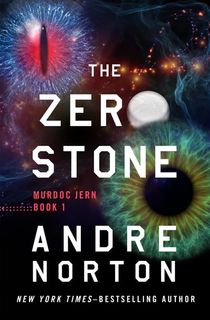
The Zero Stone
Andre Norton’s The Zero Stone is a sci-fi classic.
The stone at the center of the plot is mystically powerful, and the cast of characters includes a psychic mutant cat. What more could you ask for? Norton’s writing is a great reminder of how memorable sci-fi can be, even when it's not concerned with real-world logic and hard scientific concepts.
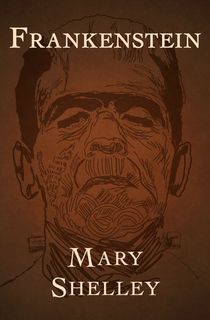
Frankenstein
A landmark in both science fiction and horror, Mary Shelley's Frankenstein is definitely on the softer side of sci-fi.
The creation of Frankenstein's monster is not exactly realistic, but the book's insights into psychology and mortal weakness are brilliant.
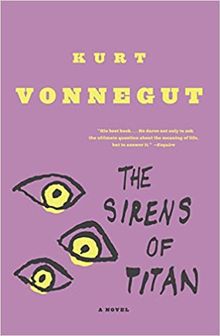
The Sirens of Titan
Playing fast and loose with realism and rules opens up a lot of options for satirists.
Kurt Vonnegut is widely remembered as a literary titan and a master satirist, but he's not always fairly credited as one of science fiction's all-time greats, which he undoubtedly is.
Vonnegut's pulpy sci-fi settings and plots are as vital to his work as his wit. Virtually all of Vonnegut's works are in the sci-fi genre, and all of his sci-fi is wild, wonderful, and soft.
Read The Sirens of Titan, like we suggest, or try one of Vonnegut’s other sci-fi masterpieces: Slaughterhouse-Five and Cat’s Cradle are two other great ones to start with.
This post is sponsored by Open Road Media. Thank you for supporting our partners, who make it possible for The Portalist to celebrate the sci-fi and fantasy stories you love.





